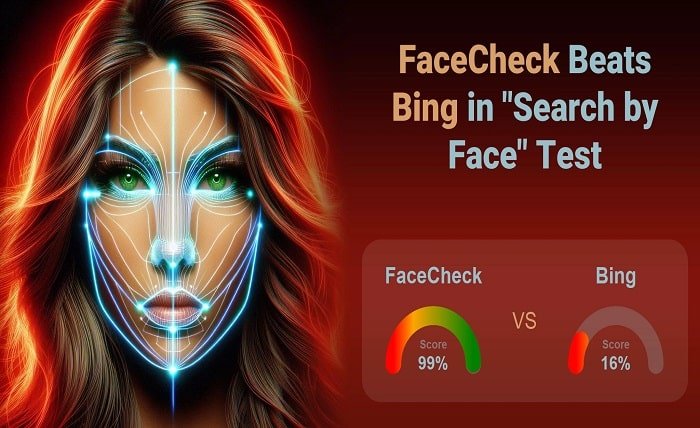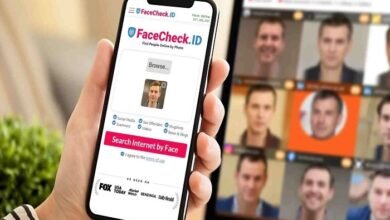Is FaceCheck ID Safe? A Comprehensive Review

FaceCheck ID has emerged as a significant tool in the world of identity verification. With the increasing need for secure authentication processes, FaceCheck ID promises to provide users with a safer and more efficient way to confirm their identity online. However, just like any technology that handles sensitive personal data, many people wonder, “Is FaceCheck ID safe?”In this blog post, we’ll dive deep into the security features, advantages, potential risks, and overall safety of using FaceCheck ID. By the end of this post, you’ll have a clearer understanding of whether it’s a reliable tool for online security.
What Is FaceCheck ID?
FaceCheck ID is a biometric authentication service that uses facial recognition technology to verify your identity. This tool is particularly useful for various online applications such as banking, social media accounts, e-commerce, and even government services. The process involves scanning your face through a camera (either through your mobile device or computer) and comparing it against pre-registered facial data.The idea behind FaceCheck ID is to enhance security by ensuring that only authorized individuals can access their accounts or perform actions that require identity verification. It eliminates the need for passwords, which are often weak or easily compromised.
How Does FaceCheck ID Work?
FaceCheck ID works by capturing the unique features of your face using a high-resolution camera. When you register for FaceCheck ID, the system stores the distinct biometric data points (such as the distance between your eyes, nose, and mouth) that make your face unique. This data is encrypted and stored in a secure database.Each time you attempt to log in, the system scans your face and compares it to the stored data. If there is a match, access is granted; if not, the system denies access. The entire process usually takes only a few seconds and doesn’t require you to remember any complex passwords or PIN codes.
Is FaceCheck ID Safe for Personal Use?
FaceCheck ID is considered safe for personal use, as it offers several layers of security. The technology behind FaceCheck ID uses advanced encryption methods to store your facial data, which reduces the risk of unauthorized access. Additionally, the biometric data is generally stored in a decentralized manner, meaning it’s not all stored in one central location. This significantly lowers the likelihood of a large-scale data breach.However, like any technology, FaceCheck ID does come with potential risks. There have been concerns over the possibility of facial data being hacked, especially if the company storing this data doesn’t employ strong encryption or follows inadequate security protocols. This is why it’s crucial to choose a service provider that places a strong emphasis on security.
Key Security Features of FaceCheck ID
FaceCheck ID boasts several security features designed to protect your personal data. Let’s look at some of the main features that make it a secure solution for identity verification.
1. Advanced Encryption
The data collected by FaceCheck ID, including your facial recognition template, is encrypted using industry-standard encryption algorithms. This ensures that even if someone gains unauthorized access to the data, they won’t be able to read or misuse it.
2. Two-Factor Authentication (2FA)
To further enhance security, FaceCheck ID can be combined with two-factor authentication (2FA). This means that in addition to your face, you would also need to verify your identity with a second method, such as a text message or email. This adds an extra layer of protection to your accounts.
3. Liveness Detection
One of the potential vulnerabilities of facial recognition technology is the ability to spoof or mimic someone’s face using photos or videos. FaceCheck ID includes liveness detection, which ensures that the scan is being conducted in real-time and not from a static image or video.
4. Decentralized Data Storage
Rather than storing facial recognition data on a central server, some FaceCheck ID providers opt for decentralized storage. This means that your data is distributed across multiple servers, making it harder for attackers to gain access to large datasets.
5. Privacy Regulations Compliance
FaceCheck ID providers are also required to comply with data protection laws, such as the General Data Protection Regulation (GDPR) in Europe. This means that the company handling your data must follow strict guidelines on how the data is collected, stored, and processed.
Potential Risks of Using FaceCheck ID
While FaceCheck ID offers a high level of security, there are still potential risks to be aware of. Let’s explore some of the concerns associated with this technology.
1. Data Breaches
Like any technology that stores personal data, FaceCheck ID is vulnerable to data breaches. While encryption and decentralized storage reduce the risk, it’s still possible for hackers to exploit weaknesses in the system. If a breach occurs, your facial data could be exposed and used for malicious purposes.
2. Privacy Concerns
Facial recognition technology raises concerns about privacy, particularly if the data is used without consent or shared with third parties. There have been instances where facial recognition technology has been used for surveillance purposes without the knowledge or permission of individuals. This is why it’s important to choose a FaceCheck ID provider that is transparent about its data collection and usage policies.
3. False Positives and False Negatives
Although FaceCheck ID has become highly accurate, no biometric system is perfect. There may be instances where the system fails to correctly identify you (false negative) or mistakenly grants access to someone else (false positive). This can be especially problematic in situations where the system is relied upon for critical security purposes, like accessing financial accounts.
4. Dependency on Technology
Relying on facial recognition technology can also pose a risk if the system experiences technical issues, such as camera malfunctions or software glitches. In such cases, you may be unable to access your account or perform actions that require identity verification.
Is FaceCheck ID Safe for Businesses?
FaceCheck ID isn’t only used by individuals; it’s also a popular tool for businesses that need to secure customer data, prevent fraud, and streamline authentication processes. For businesses, FaceCheck ID can be a highly effective security tool. It provides a secure and convenient method for customers to verify their identity, which can reduce fraud and enhance trust.
However, businesses need to ensure that they are using FaceCheck ID from a reputable provider with strong security practices in place. Additionally, businesses must stay up to date on the latest privacy laws and make sure that they’re in full compliance with data protection regulations to protect their customers.
Alternatives to FaceCheck ID
While FaceCheck ID offers numerous security benefits, it may not be the right choice for everyone. Some people may prefer alternative methods of authentication, such as fingerprint scanning, voice recognition, or even traditional passwords.
If you’re concerned about the risks associated with facial recognition, here are a few alternatives to consider:
- Fingerprint Scanning – Like facial recognition, fingerprint scanning is a biometric method, but it focuses on the unique patterns found in your fingerprints.
- Password Managers – If you’re worried about the security of biometric data, you can use a password manager to create and store complex passwords, ensuring that your accounts are protected by strong passwords.
- Voice Recognition – Voice authentication is another form of biometric security that analyzes your unique voice patterns for identification.
- Two-Factor Authentication – Adding a second layer of security to your accounts can significantly reduce the likelihood of unauthorized access.
Conclusion
So, is FaceCheck ID safe? Overall, FaceCheck ID is considered a safe and secure method of identity verification. It employs advanced encryption, liveness detection, and decentralized data storage to protect your personal information. While there are potential risks, such as data breaches and privacy concerns, these are mitigated by using reputable providers and adhering to best practices for data security.
For individuals and businesses looking for an easy-to-use, secure method of authentication, FaceCheck ID is an excellent choice. However, it’s important to understand the risks and ensure that you’re using the technology responsibly.
FAQs
- Is FaceCheck ID secure enough for online banking? Yes, FaceCheck ID is secure enough for online banking. It offers advanced encryption and liveness detection, making it a safe way to authenticate your identity.
- Can someone spoof FaceCheck ID with a photo? No, FaceCheck ID uses liveness detection to ensure that the scan is being conducted in real-time and not from a static image.
- What happens if there’s a data breach with FaceCheck ID? In the event of a data breach, your encrypted facial data could be exposed. However, decentralized data storage and encryption reduce the risk of such breaches.
- Does FaceCheck ID comply with data protection laws? Yes, FaceCheck ID providers are required to comply with privacy regulations, such as GDPR, ensuring that your data is handled responsibly.
- What are the alternatives to FaceCheck ID? Alternatives include fingerprint scanning, voice recognition, password managers, and two-factor authentication.





